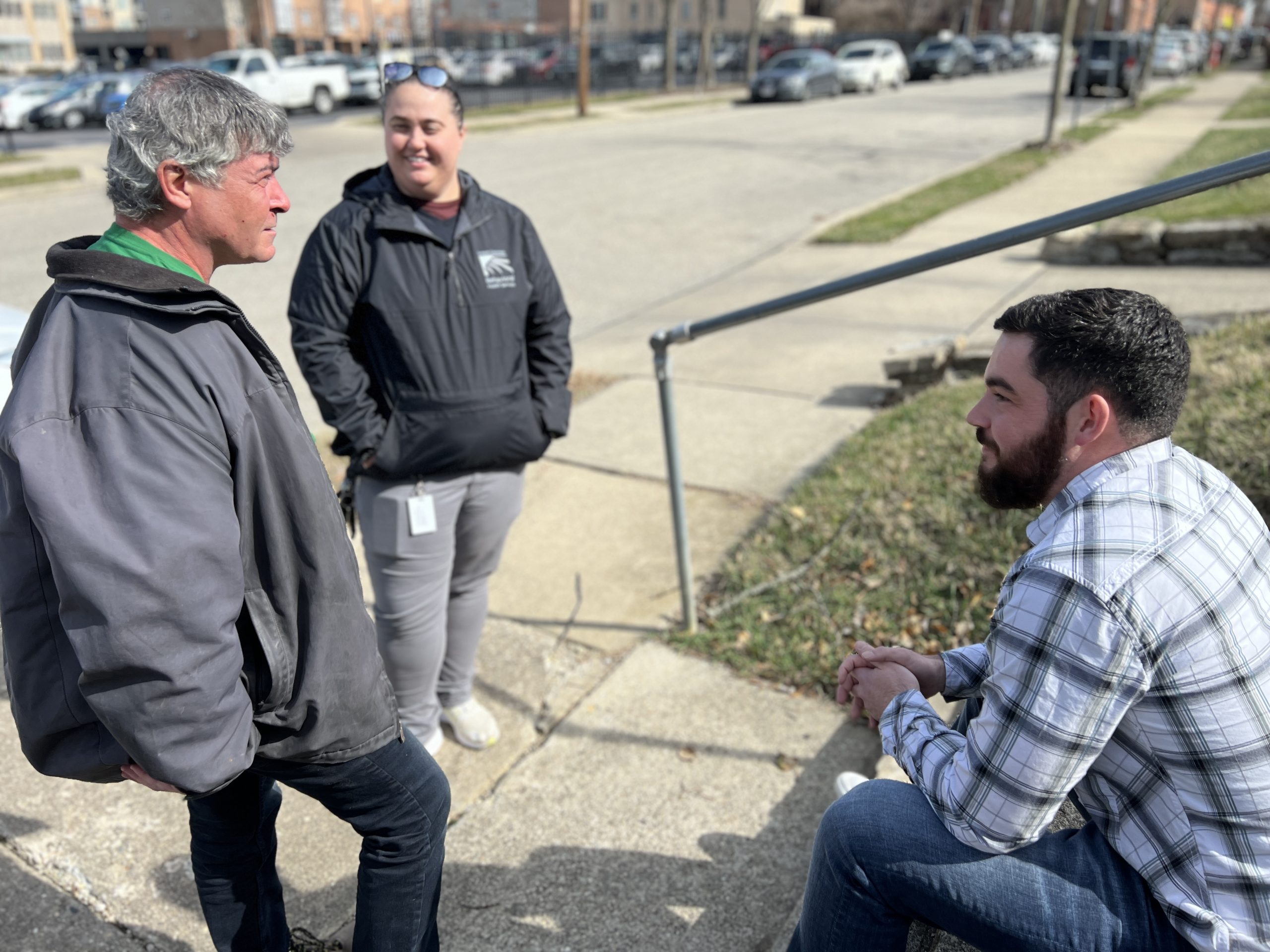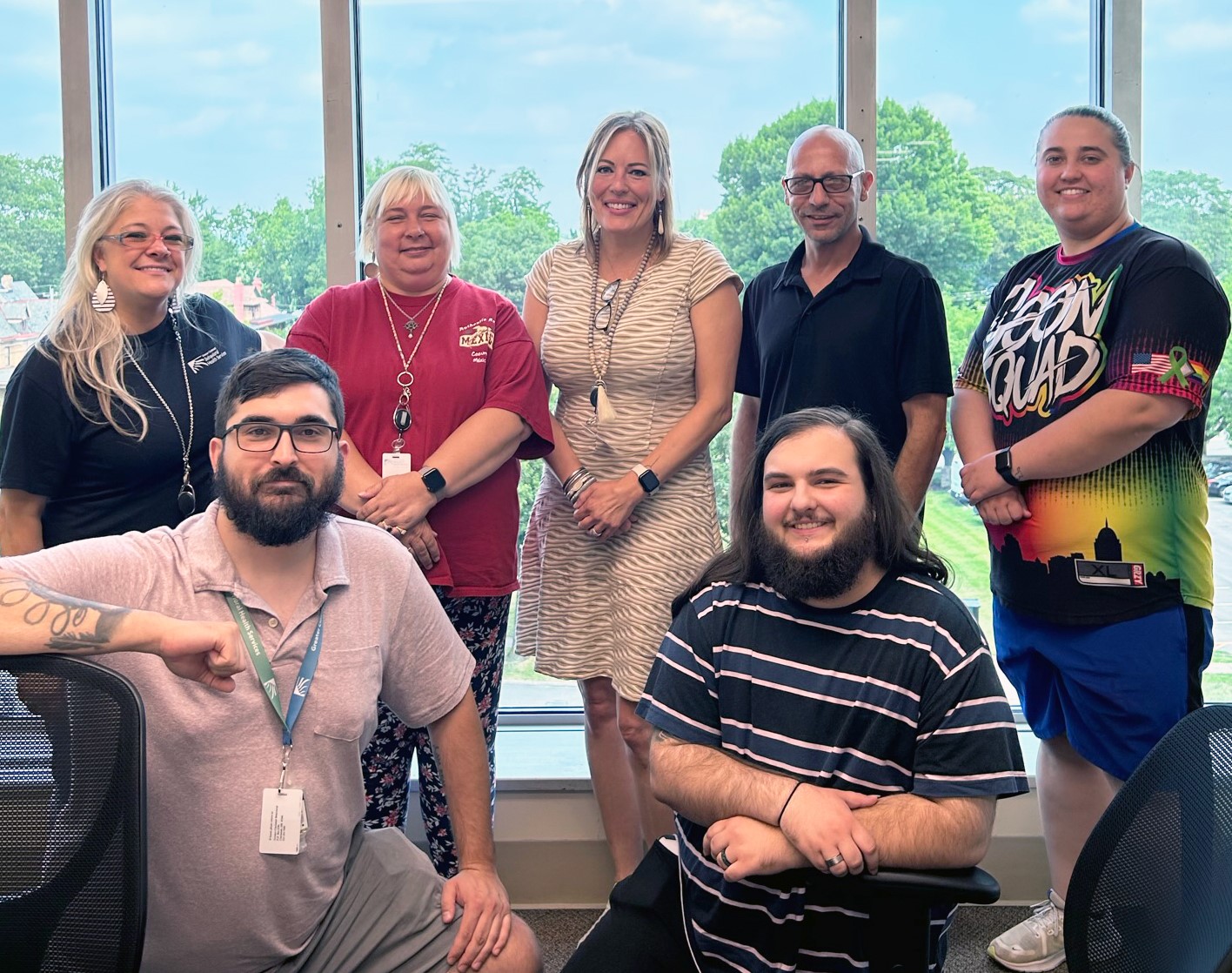
When someone goes undiagnosed with a severe mental illness such as schizophrenia and they do not have access to care, needs are not met, and symptoms escalate. Organizations, such as Greater Cincinnati Behavioral Health Services (GCBHS) in southwestern Ohio offer intensive support to these individuals who are often overlooked and some of the most vulnerable among us. The GCBHS Assertive Community Treatment (ACT) teams focus not only on treatment options, but also on other wrap-around supports that address basic needs. ACT teams are made up of multiple specialists whose combined goal is to advocate for the clients by accessing community resources. ACT teams focus on helping to stabilize the client and have them graduate to a lower level of care.

Greater Cincinnati Behavioral Health Services (GCBHS) has multiple programs that serve people who are experiencing severe psychiatric disorders such as schizophrenia and schizoaffective disorder, as well as programs that engage people who are struggling with homelessness. One of the programs that combines both the severe psychiatric disorders along with housing instability is our Homeless ACT team.
ACT stands for “Assertive Community Treatment” and is regarded as a high level, intensive care management team. In all, GCBHS has six ACT teams including Traditional ACT, an Integrated Dual Disorder Team (IDDT) for clients with a co-occurring mental health and a substance use disorder (SUD) diagnosis, a Forensic ACT (FACT) team that focuses on recently paroled individuals, two mental health court teams (Municipal and Felony), and the Homeless ACT team.
To qualify for a Hamilton County ACT team clients must be 18 years of age or older, live in Hamilton County and have a psychotic disorder such as schizophrenia, schizoaffective disorder, or a major depressive disorder with psychotic features. They must also have a Daily Living Activity score (DLA) under 30. The DLA score focuses on 20 different areas of life including housing, productivity, communication, safety, problem solving, and hygiene.
The Homeless ACT team is made up of six care managers who share the caseload of 67 clients. This includes a substance use disorder specialist; a vocational specialist who assists with employment; a nurse, and a supervisor. The doctor assigned to Homeless ACT is Psychiatrist Dr. Tracey Skale, the Chief Medical Officer for Greater Cincinnati Behavioral Health Services. “I’ve been with the Homeless ACT team since the beginning,” says Skale. “I love working with all of the teams but this one always has had a special place in my heart. Clients on this team have every psychiatric illness but the common thread is homelessness.”
GCBHS care managers are trained to help clients navigate what can be a very difficult process which can be very overwhelming and discouraging for someone with a severe mental illness. They also help clients make and keep appointments, plan and stick to a budget and ensure the clients are signed up for some type of income – typically social security disability.
The team helps people like Jason, who has schizophrenia, a neurobiological illness that affects one percent of the population. Until recently, Jason has been living on the streets. No one knows specifically what happened but when a timeline was pieced together it appears that he was in an apartment for many years before simply walking away to live outside. What we do know is that around that same time, the building manager passed away. Whether or not that triggered something in Jason we can only surmise. But something did happen that made him unable to be surrounded by four walls.

According to Brandy, a care manager on the team, “Two years ago he refused to have any conversations about housing. He had serious issues with being inside due to his mental illness. In fact, he would prefer to live at construction sites because, in his mind, he was a construction worker and that’s where he felt the most comfortable.” The team supervisor Stephanie concurs, “It was baby steps. We had to develop that relationship and work on meeting his basic needs first. That allowed us to build a deeper trust. Once we earned his trust and kept it, he agreed to see a psychiatrist. But it definitely did not happen overnight.”
So how did it happen? Stephanie explains, “He began to see Dr. Skale and established a relationship with her. Once that happened, he was more open to trying medication injections. That led to an improvement in engagement and symptom management, which caused a reduction in barrier symptoms and eventually led to the apartment.” Since moving into his apartment, the team has noticed big changes in Jason. He has remembered how to clean and cook for himself, and he is even shaving! Brandy says, “We give Jason a lot of credit for his desire to be pro-active. Many times, now he’s the one calling us to make sure his appointments have been made.” She smiles, “It doesn’t get much better than that!”
Jason has nothing but praise for the team, “The ACT team has helped me so much,” he says. “I can’t drive so they help me get around (some of the symptoms Jason experiences make it dangerous for him to drive). They’ve been like a family.”
According to Dr. Skale, “It is with complete confidence I can say to the patient before me, ‘we can help you’ because from my years of experience, I know that the Homeless ACT team will do whatever it needs to do to help that person with his or her unique situation. I’ve seen it repeatedly. We keep hope alive.”

